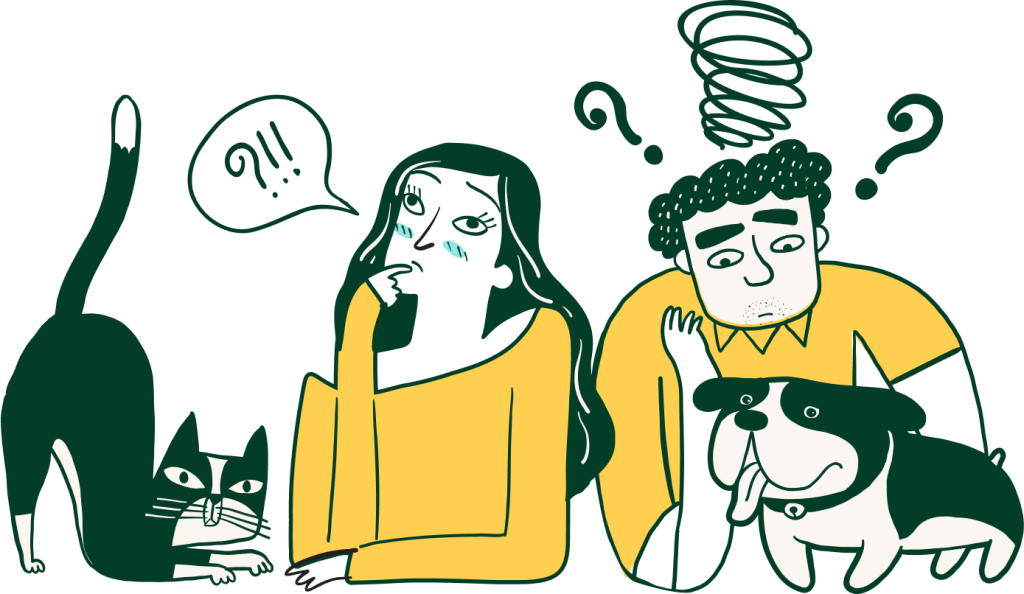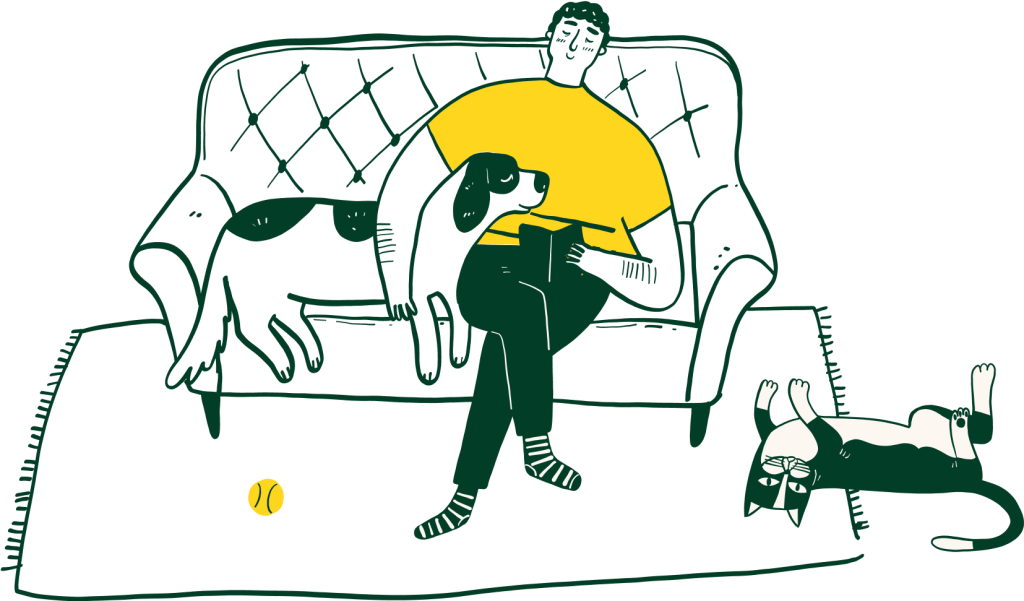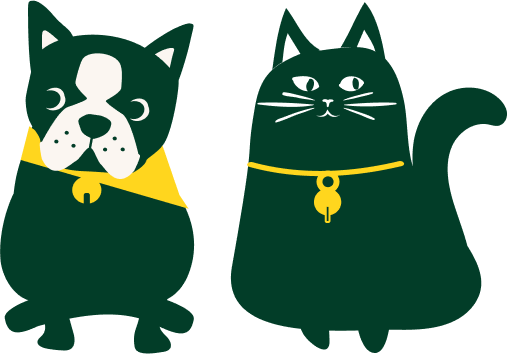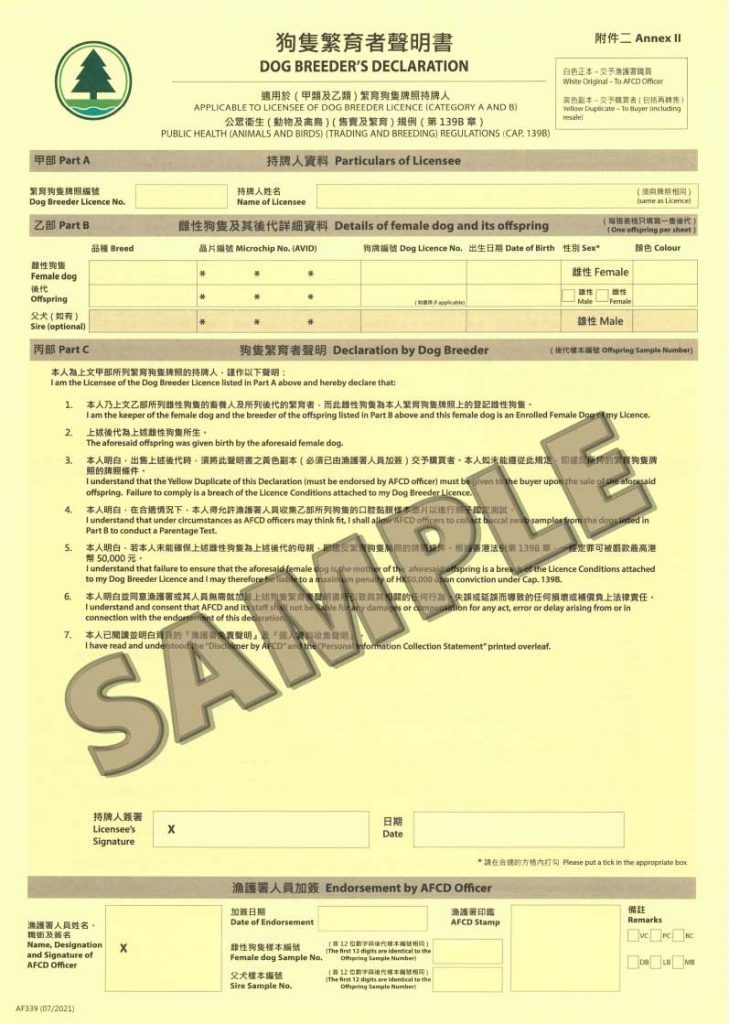New pet owners often have many questions before buying or adopting a dog or cat. The Agriculture, Fisheries and Conservation Department (AFCD) has compiled answers to a series of frequently asked questions for prospective owners. The AFCD hopes that citizens can successfully obtain healthy pets through legal channels and avoid falling into scams.

Not necessarily. The lower price of pets may be due to the pets originating from illegal sources, such as unregulated and low-quality breeding farms, either locally or overseas. Pets from low-quality breeding farms frequently suffer from health issues, and even if they can be treated, the owners may have to bear high medical costs.
Compared to unlicensed sellers of unknown origins online, all physical pet shops in Hong Kong are legally required to obtain an “Animal Trader Licence” issued by the Agriculture, Fisheries and Conservation Department (AFCD), and strictly abide by the licensing conditions to ensure that animal activity space, sanitation, and ventilation must comply with regulations. The relevant licence should also be clearly displayed in an obvious spot in the store.
The AFCD also conducts regular inspections, both scheduled and surprise, of the licensed pet shops. If the licensee or premises fails to comply with licence conditions or code of practice, the licence may be revoked and they could face prosecution with fines of up to HK$50,000. If consumers observe any suspicious or illegal behaviour, they are encouraged to report them by calling 1823.
Licensed pet shops have clear and detailed licensee information in the government system, making it relatively easy for consumers to hold them accountable. On the contrary, online pet sellers operate in the virtual world. Their identities and addresses cannot be confirmed, complicating efforts for buyers and law enforcement officials to find out the real location and condition of the premises, making it difficult to pursue them.
Purchasing pets online, whether through online stores or social media platforms, carries significant risks for consumers. Firstly, buyers cannot physically inspect the true condition of the pet or its environment. Secondly, the anonymity of online sellers makes it difficult for law enforcement agencies to trace their identities, making it challenging for consumers to address any problems that may arise. To mitigate these risks, buyers should purchase from legitimate pet sources and try to verify the pet’s health and condition through various means. It is important not to make any payments, including deposits or any fees, before seeing the pet in person. In addition, web pages, phone numbers, or WhatsApp numbers that appear to be local on social media platforms and web pages are not necessarily registered or used locally, making them difficult to trace.
To verify the authenticity of your pet’s vaccination card, you can check the following points:
Animal illnesses are often difficult to detect with the naked eye. The Animal Trader Licence mandates that all cats and dogs undergo a veterinary examination within 30 days before being offered for sale. The AFCD advises members of the public to take cats and dogs for veterinary examination within a few days after purchasing them.
You can report to the Agriculture, Fisheries and Conservation Department by calling 1823.
Besides being highly vulnerable to scams or purchasing a pet with health issues, buyers may have inadvertently facilitated illegal trafficking as many unlicensed sellers smuggle pets into Hong Kong. They may also contribute to the detriment of animal welfare, because pets sold online likely come from illegal breeding farms in poor conditions, lacking basic sanitation facilities and proper medical care. Animals confined in small and dirty cages endure unnecessary physical suffering and psychological trauma.
Please consider adopting instead of buying!


Enquiry Hotline (1823)


Contact Us
All rights reserved by Agriculture, Fisheries and Conservation Department
Last updated: 2024/12/05
